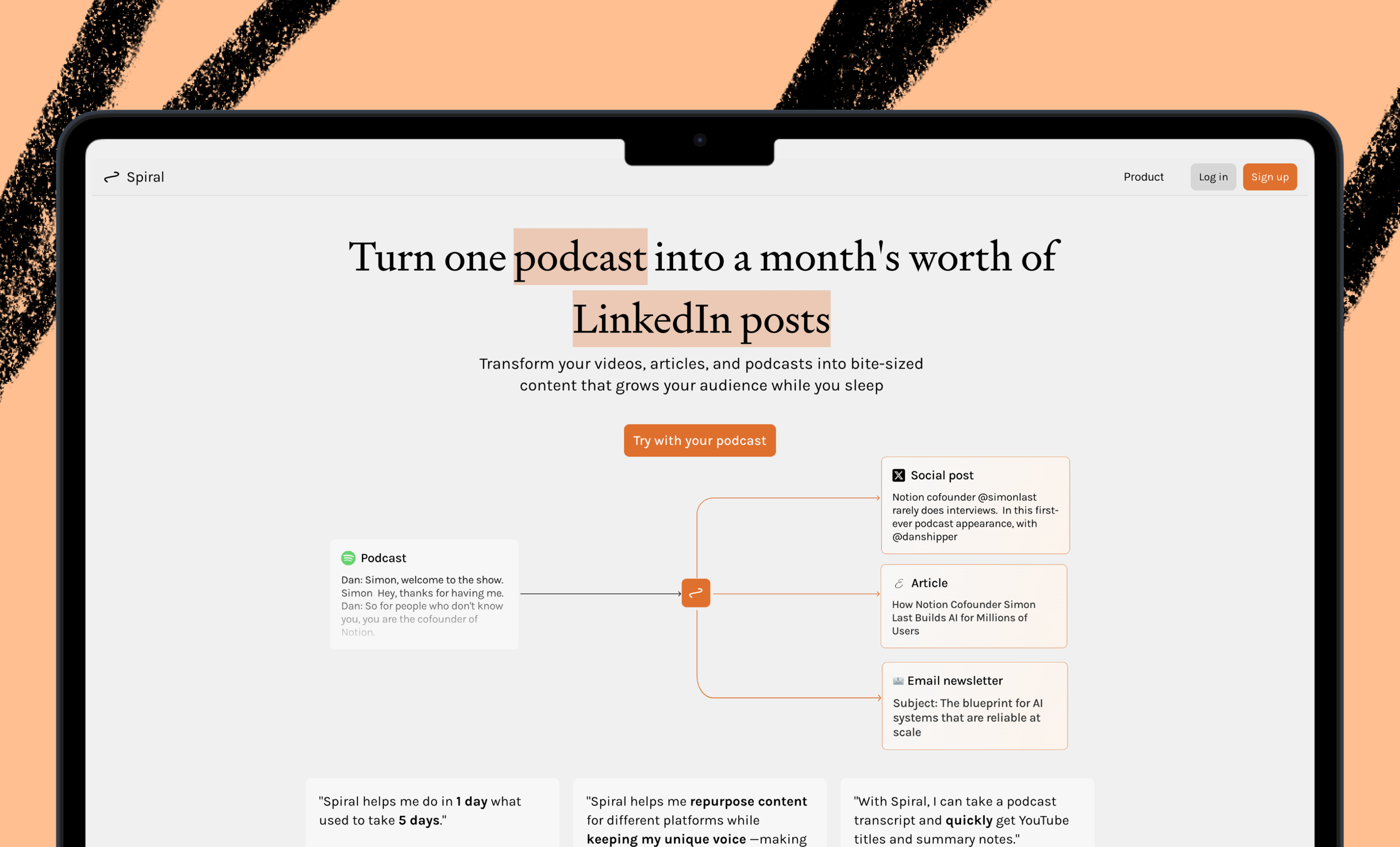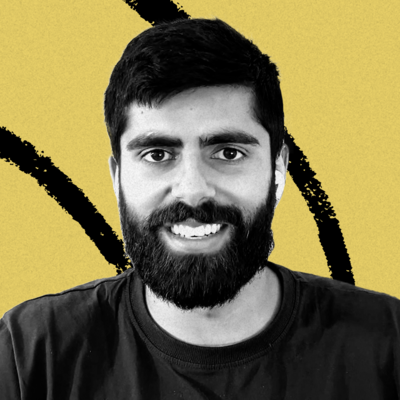.png)
TL;DR: Today we’re releasing a new episode of our podcast AI & I. Dan Shipper goes in depth with Will England, the CEO and CIO of Walleye Capital, one of Every’s consulting clients. Watch on X or YouTube, or listen on Spotify or Apple Podcasts. Here’s a link to the episode transcript.
Was this newsletter forwarded to you? Sign up to get it in your inbox.
If you aren’t putting ChatGPT to work, you’re leaving money on the table.
That’s the message Will England, CEO, CIO, and managing partner of Walleye Capital, sent to his 400 employees. At his $10 billion hedge fund, using AI is a requirement.
England believes AI can make his employees at least 20 percent smarter right now—and he’s pivoting his whole firm to use it to its maximum extent. (Our consulting team has been helping him do this. If you like what you read and want to help your team do what Will’s doing with AI, we’d love to hear from you.)
In this episode of AI & I, Dan Shipper and England talk about why he believes AI will help his team have an edge and how to lead a firm-wide pivot to AI from the front. England shares how he uses LLMs to write memos and evaluate risk with his team, as well as his larger vision for turning Walleye’s institutional knowledge into a living, searchable intelligence system. England also reflects on the history of technological change and what past transitions, specifically the period between the Civil War and World War I, can teach us about navigating this one.
You can check out their full conversation here:
If you want a quick summary, here are some of the themes they touch on:
England believes AI is the inevitable future of work (00:06:36)
In March of 2023, a Walleye analyst told England he was trying to automate his job with GPT-3. England was skeptical, but after the analyst demonstrated how the AI made him more efficient, England knew that integrating AI into human workflows was the future. “You need to have a sense of belief, you need to imagine, you need to be able to dream, but if you understand the problem you’re trying to solve and the tools that are available—this is absolutely where we’re going,” he said.
(That analyst now leads Walleye’s most advanced firm-wide AI tool, called Current, which ingests large amounts of data about a stock—earnings call transcripts to information from brokers—and helps portfolio managers make sense of it).
To illustrate the point of having a little imagination about how AI will fit into your work, England draws an analogy to a character in his favorite childhood Disney movie, Merlin from The Sword and the Stone. Merlin is a wizard who can see fragments of the future but not the steps it takes to get there. England feels like the Merlin of Walleye: “It’s impossible for me not to believe that in five years, firms that do what we do won’t be heavily integrated with best-of-breed AI technology,” he says.
What ‘AI-first’ means inside Walleye (00:15:15)
Shopify’s CEO published an internal company memo with expectations for employees to integrate AI into their work, and it’s since become something of a meme. England’s memo for Walleye started with the line: “I used ChatGPT to write this email, you should be using it too, and be proud of it.” He said not using AI today is as shortsighted as refusing to use the internet in 1995 because it wasn’t perfect. England told his team that using ChatGPT is a “magic elixir that makes you 20 percent smarter instantly,” making it clear that it isn’t “cheating.” He made AI fluency mandatory across the firm, for anyone who “think[s] for a living,” whether in investment roles or not.
What I especially liked about England’s memo was his call out of the fact that using AI isn’t cheating. It’s a common hang-up that if something feels too easy it must in some way cheapen the work done, one I’ve felt too. But as England explains, the point is to free up time for higher-leverage thinking, like strategy and creativity. He also emphasizes that while these tools aren’t perfect, waiting for perfection is a mistake; in fact, the edge goes to people who start early, flaws and all.
How England practices what he preaches (00:27:00)
England is leading by example when it comes to using AI, starting with how he writes. England thinks best by writing, and LLMs have made that process quicker: a memo that once took five hours to draft may now take him 15 minutes. His process starts with listing bullet points of what he wants to say. Then he uses a language model to help turn his ideas into polished prose, often giving it context of drafts he’s written in the past. The value England sees is letting the AI handle the linguistic syntax, so he can spend more time thinking the concepts through. “These tools don’t negate the necessity to think… if anything they should just give you more time to think,” he says.
England has also been thinking about how AI figures into Walleye’s decision-making process. He’s part of a daily call to monitor the firm’s risk—its positions in the market that might lead to potential gain or loss. The team has been recording these calls with the objective of using AI to process the transcripts and surface insights discussed on previous calls and find patterns across them. This is part of a broader vision England calls "Borg," a nod to Star Trek (and yes, he’s disappointed if you don’t get the reference): a rich collective data source built on what the firm sees and says.
Here’s a link to the episode transcript.
You can check out the episode on X, Spotify, Apple Podcasts, or YouTube. Links are below:
- Watch on X
- Watch on YouTube
- Listen on Spotify (make sure to follow to help us rank!)
- Listen on Apple Podcasts
What do you use AI for? Have you found any interesting or surprising use cases? We want to hear from you—and we might even interview you.
Miss an episode? Catch up on Dan’s recent conversations with founding executive editor of Wired Kevin Kelly, star podcaster Dwarkesh Patel, LinkedIn cofounder Reid Hoffman, former a16z Podcast host Steph Smith, economist Tyler Cowen, writer and entrepreneur David Perell, founder and newsletter operator Ben Tossell, and others, and learn how they use AI to think, create, and relate.
If you’re enjoying the podcast, here are a few things I recommend:
- Subscribe to Every
- Follow Dan on X
- Subscribe to Every’s YouTube channel
Rhea Purohit is a contributing writer for Every focused on research-driven storytelling in tech. You can follow her on X at @RheaPurohit1 and on LinkedIn, and Every on X at @every and on LinkedIn.
We build AI tools for readers like you. Automate repeat writing with Spiral. Organize files automatically with Sparkle. Write something great with Lex. Deliver yourself from email with Cora.
We also do AI training, adoption, and innovation for companies. Work with us to bring AI into your organization.
Get paid for sharing Every with your friends. Join our referral program.
Ideas and Apps to
Thrive in the AI Age
The essential toolkit for those shaping the future
"This might be the best value you
can get from an AI subscription."
- Jay S.
Join 100,000+ leaders, builders, and innovators

Email address
Already have an account? Sign in
What is included in a subscription?
Daily insights from AI pioneers + early access to powerful AI tools










Comments
Don't have an account? Sign up!